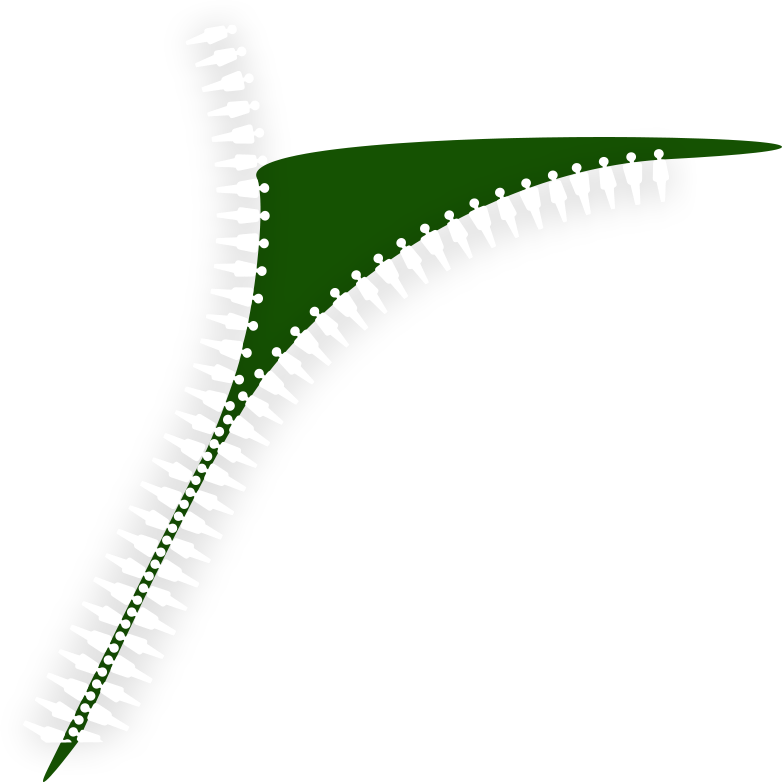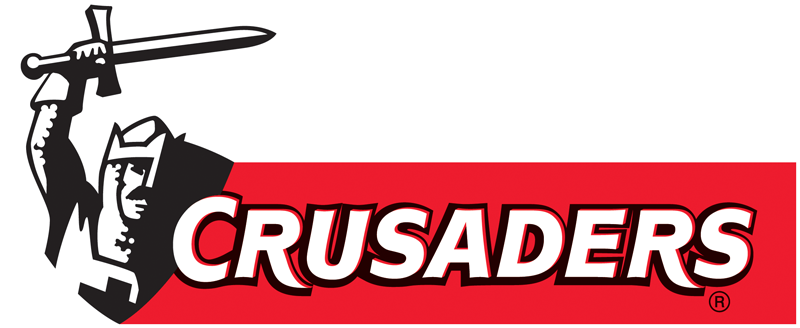
Australasia's Best Sporting Team
Powered by GAIN LINE AnalyticsWhat makes a winning team?
Concept Overview
There is a continuous debate in the pubs, clubs and lounge-rooms of Australia and New Zealand as to whether great historic teams could have survived in today’s competitions, or about which football code is the best of all.
Australasia’s Best Sporting Team has been designed to bring an analytical approach to answering some of these questions, and in doing so aims to start a new conversation about greatness and rewarding success, as well as unearthing some hidden gems and helping those in need.
Platinum Asset Management, in conjunction with GAIN LINE Analytics have conducted a huge statistical analysis of 74,426 matches between 222 teams in 14 sports over 25 years to come to a conclusion. The winning team is being presented with the opportunity to make a donation to a local cause in their community.
This concept appealed to Platinum given the body of work we have done with GAIN LINE on our own team cohesion
Methodology
The period of observation, 1994-2018, is coincident with the history of Platinum Asset Management, the award sponsor.
Every game in every sport in Australasia that conducts an ongoing home/away or equivalent competition that included Australian and New Zealand teams has been analysed subject to the competition meeting the following criteria.
To be considered for the Best Team award a team must have played in a minimum of 10 of the seasons within the 25 year period – noting that where there has been a breach of competition conditions and sanctions put in place that this is excluded via one of the adjustment metrics. For each team in the competition, their win/loss record is looked at season by season, along with their position within the competition. For each of these measures, over 25 years a Z-Score is created to show their relative raw performance output between all the teams across all the competitions.
Two adjustment metrics are then applied to place the raw performance output in context. Firstly to reflect the stability of the competition – stable competitions being harder to perform well consistently because of the impact that player trading cycles have on team and competition competitiveness. Secondly to reflect the longevity of the club by being rewarded for their tenure within the 25 years, including any sanctions for non-compliance with competition rules.
Eligible teams, of which there are 122, are then ranked on their double adjusted double raw performance Z-Scores, to provide the definitive list of Australasia’s Best Sporting Teams. The website contains the Top 25 overall, Top 3 by sport and Top 3 by state/country.
To be the best team in a sport over a prolonged period requires dedication, endurance, excellence and cohesion. To be the best overall, is a step beyond.
Award
As part of the Australasia’s Best Sporting Team and the team cohesion work between Platinum Asset Management and GAIN LINE Analytics, Platinum will award A$25,000 to the winning team to donate to a worthwhile cause of the winning team’s choice.
$25,000 Grant


Best Sporting Team 1994-2018
The BNZ Crusaders began their inaugural Crusade in 1996 as part of the introduction of Super Rugby – the toughest international rugby competition in the world.
Our team, and the Crusaders Brand, is built on the ethos of; ‘the team is more highly valued than any one individual’. An understated ruthless pursuit of excellence. Leaving nothing to chance, by attention to detail, courage under fire, innovation and risk taking, all in red and black.
Our vision is ‘to inspire through being the best’, and this is no more evident than through our on-field success. In the 22 years of Super Rugby, the Crusaders have won 9 titles, been finalists 13 times and semi-finalists 18 times, plus we are the only Super Rugby team to win every game in a whole season. The BNZ Crusaders are the world’s most successful non-international professional rugby team – we aim to consistently lead the way and follow no one.
“Team culture is critical to success, and this is at the heart of the BNZ Crusaders. Getting up off the ground to make your next tackle because you care about the bloke next to you and the people that you represent off the field…that’s culture.
I’m fortunate to have been involved with this club for a long time, first as a player and now as a Coach. We have great people behind us, who do their job with passion and continuously contribute to our culture. This makes all the difference to our performance and success.”
ABST Annual Award
Following the 25 year award there will an ongoing award for the current best sporting team in Australasia based on a 5 year time span.
This will add teams currently in existence that have been participating for a minimum of 5 years in line with the other eligibility criteria. This would, for example, add GWS and the Gold Coast to the AFL and teams from leagues such as W-League, Australian Baseball League and Big Bash T20 Cricket.
Top 25

ABST originally started as a research project at GAIN LINE Analytics in trying to decipher what a truly successful team could be defined as. It was decided that this inaugural award was to be the best franchise of the last 25 years in line with
the tenure of Platinum, GAIN LINE Analytics research partner.
Understanding the size and variety of the sporting landscape in Australia gives some idea of the complexity
of determining the best team.
| Ranking | Team Name | Competition | Country/State | ABT Score |
|---|---|---|---|---|
| 1 | Crusaders | Super Rugby | NZ | 3.41 |
| 2 | Brisbane Broncos | NRL | QLD | 3.08 |
| 3 | Geelong Cats | AFL | VIC | 2.96 |
| 4 | Fremantle Mariners | NWPL | WA | 2.88 |
| 5 | New South Wales Breakers | WNCL | NSW | 2.82 |
| 6 | QLD | Sheffield S. | QLD | 2.71 |
| 7 | Sydney University Lions | NWPL | NSW | 2.61 |
| 8 | Melbourne Storm | NRL | VIC | 2.45 |
| 9 | Perth Wildcats | NBL | WA | 2.36 |
| 10 | Sydney Roosters | NRL | NSW | 2.31 |
| 11 | Sydney Swans | AFL | NSW | 2.19 |
| 12 | Sydney University Flames Bankstown | WNBL | NSW | 2.12 |
| 13 | Adelaide Lightning (City) | WNBL | SA | 1.96 |
| 14 | Brumbies | Super Rugby | ACT | 1.86 |
| 15 | Fremantle Marlins | NWWPL | WA | 1.79 |
| 16 | Melbourne United/Tigers | NBL | VIC | 1.75 |
| 17 | West Coast Eagles | AFL | WA | 1.72 |
| 18 | Canterbury-Bankstown Bulldogs | NRL | NSW | 1.69 |
| 19 | Newcastle North Stars | AIHL | NSW | 1.63 |
| 20 | Brisbane Barracudas | NWWPL | QLD | 1.58 |
| 21 | Victoria | Sheffield S. | VIC | 1.56 |
| 22 | NSW/Sydney Swifts | Netball | NSW | 1.54 |
| 23 | Manly-Warringah Sea Eagles | NRL | NSW | 1.50 |
| 24 | Hawthorn Hawks | AFL | VIC | 1.44 |
| 25 | Cronulla Sharks Water Polo Club | NWPL | NSW | 1.40 |
-
Male
-
Female

Top 3 by sport
Basketball
| Perth Wildcats |
| Sydney University Flames Bankstown |
| Adelaide Lightning (City) |
Cricket
| QLD |
| Victoria |
| New South Wales Breakers |
Water Polo
| Fremantle Mariners |
| Sydney University Lions |
| Fremantle Marlins |
AFL
| Geelong Cats |
| Sydney Swans |
| West Coast Eagles |
AIHL
| Newcastle North Stars |
| Melbourne Ice |
| Adelaide Adrenaline |
A-League
| Melbourne Victory |
| Sydney FC |
| Brisbane Roar |
Netball
| NSW/Sydney Swifts |
| Adelaide Thunderbirds |
| Melbourne Vixens |
NRL
| Brisbane Broncos |
| Melbourne Storm |
| Sydney Roosters |
Super Rugby
| Crusaders |
| Brumbies |
| Hurricanes |
Top 3 by region
ACT
| Brumbies | Super Rugby |
| University of Canberra Capitals | WNBL |
| Canberra Raiders | NRL |
NSW
| New South Wales Breakers | WNCL |
| Sydney University Lions | NWPL |
| Sydney Roosters | NRL |
NZ
| Crusaders | Super Rugby |
| Hurricanes | Super Rugby |
| Chiefs | Super Rugby |
QLD
| Brisbane Broncos | NRL |
| QLD | Shieffield S. |
| Brisbane Barracudas | NWWPL |
SA
| Adelaide Lightning (City) | WNBL |
| Adelaide Crows | AFL |
| Adelaide Thunderbirds | Netball |
VIC
| Geelong Cats | AFL |
| Melbourne Storm | NRL |
| Melbourne United/Tigers | NBL |
WA
| Fremantle Mariners | NWPL |
| Perth Wildcats | NBL |
| Fremantle Marlins | NWWPL |
-
Male
-
Female
The following leagues have existed or attempted to make a start in Australia. The leagues in Red were unable to qualify due to one or more of the following:
- Ceasing to currently exist.
- Be in Continuous existence for a minimum of 10 years.
- Be in a full League format for at least ten years (as opposed to a carnival format).
- Be stipulated to be the top tier in Australian sport.
- HLA: Men’s Handball League of Australia
- WAFL: Women’s AFL
- AFL: Men’s Australian Football League
- WF League: Women’s Futsal League
- F League: Men’s Futsal
- BPL: Bowls Premier League (Men)
- LGL: Ladies Gridiron League
- NGL: National Gridiron League (Men’s)
- NWWPL: National Women’s Water Polo League
- NWPL: National Water Polo League (Men’s)
- AWHL: Women’s Hockey
- WWBBT20: Women’s Big Bash T20 Cricket
- BBT20: Men’s Big Bash 2020 Cricket
- JLT Cup: Men’s One Day Cricket
- WNCL: Women’s National Cricket League
- AWIHL: Women’s Ice Hockey
- AIHL: Men’s Ice Hockey
- W A-League: Women’s A league football (Soccer)
- A League: Men’s Football (Soccer)
- ABL: Australian Baseball League (Men’s)
- WNBL: Women’s National Basketball League
- Suncorp Super Netball: Women’s Netball League
- NBL: Men’s Basketball
- Sheffield Shield: Men’s Long form Cricket
- Super Rugby: Men’s Rugby International Provincial Competition
- NRL: National Rugby League
- NRL Women’s: Women’s National Rugby League
- NRC: National Rugby Championship
It was decided to include any teams that have played in the Australian based leagues as we felt it would be deemed unfair to discount the records of the NZ Breakers, NZ/Auckland Warriors and NZ Based Super Rugby Teams amongst others, thus making it an Australasian based list.
When the 10-year ruling was applied this left 122 eligible teams.
Teams that do not feature in the top 25 will be affected by either; overall raw performance, tenure, stability of the league and size of the league.
Stability of a league and size of a league are important elements in understanding performance in context.
There are currently six women’s teams in the top 25 but this number will rise over time as many women’s teams were impacted by the tenure stipulation. There are currently 72 women’s national franchises in existence and 115 men’s franchises. The WNBL easily has the teams with the longest tenure in women’s sport with the 6 oldest franchises.
Other competitions that move back to a league from a carnival format will need to do so for a 5-year minimum. An example of this would be the JLT cup (One Day Cricket) and the Australian Hockey League.